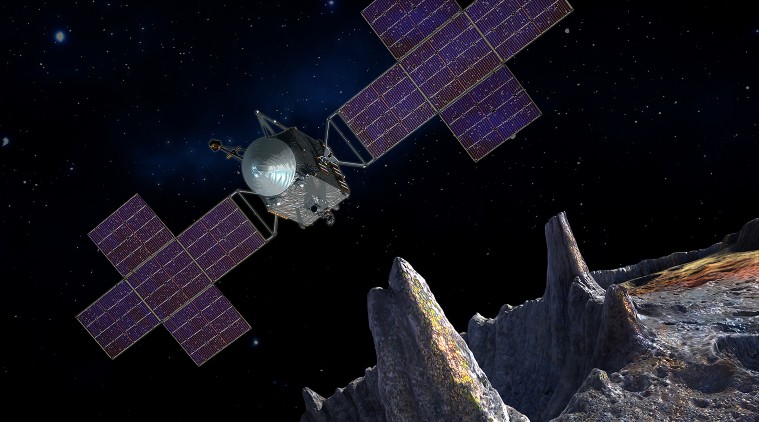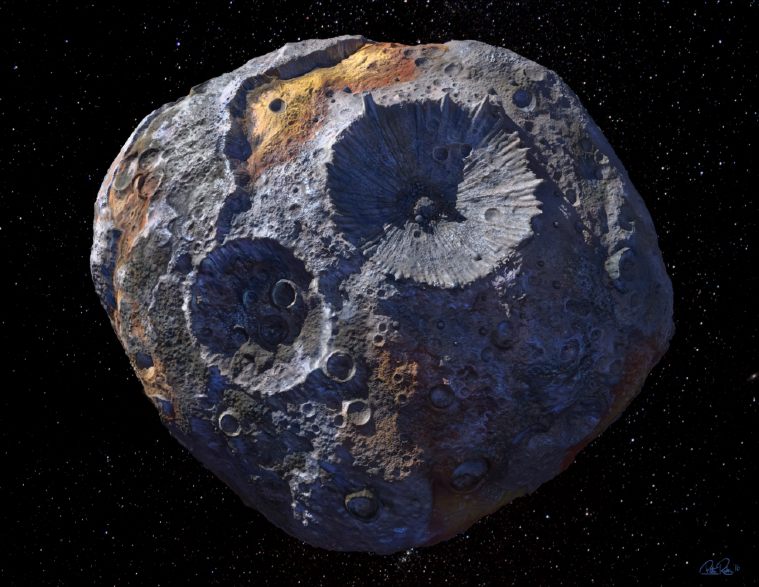 This artist’s conception shows the Psyche spacecraft near the surface of the Psyche asteroid. (Credit: Maxar/ASU/Peter Rubin)
This artist’s conception shows the Psyche spacecraft near the surface of the Psyche asteroid. (Credit: Maxar/ASU/Peter Rubin)
NASA and SpaceX are coming together for a space mission that involves a journey to a unique metal-rich asteroid called Psyche, which is orbiting the Sun between Mars and Jupiter. The space agency has contacted Elon Musk’s aerospace manufacturing company to provide launch services for the Psyche mission.
The Psyche mission is targeted to launch in July 2022 on a Falcon Heavy rocket from Launch Complex 39A at Cape Canaveral Air Force Station in Florida, NASA said in a statement. The US space agency also said that the total cost to launch Psyche and the secondary payloads is approximately $117 million, which includes the launch service and other mission-related costs.
Psyche asteroid mission
The Psyche asteroid is considered unique because it appears to largely be made of the exposed nickel-iron core of an early planet. Metallic cores are believed to be present deep within rocky, terrestrial planets like our Earth. However, since these lie unreachable far below the planet’s rocky mantles and crusts, we are unable to reach there.
 The metallic Psyche asteroid. (Credit: ASU/Peter Rubin)
The metallic Psyche asteroid. (Credit: ASU/Peter Rubin)
So, while we cannot see or measure Earth’s core directly, the mission to Psyche asteroid offers a unique window to scientists. It may even reveal the violent history of collisions and accretion that created terrestrial planets in the first place.
Express Tech is now on Telegram. Click here to join our channel (@expresstechie) and stay updated with the latest tech news
NASA said that the launch of Psyche will include two secondary payloads– Escape and Plasma Acceleration and Dynamics Explorers (EscaPADE) and Janus. While EscaPADE will study the Martian atmosphere, the Janus will study binary asteroids. The mission is led by Arizona State University and NASA’s Jet Propulsion Laboratory will be responsible for the mission’s overall management, system engineering, integration, testing and mission operations.
Maxar Technologies is providing a high-power solar electric propulsion spacecraft chassis and NASA’s Launch Services Program at Kennedy Space Center in Florida will manage the SpaceX launch service, the US space agency said.